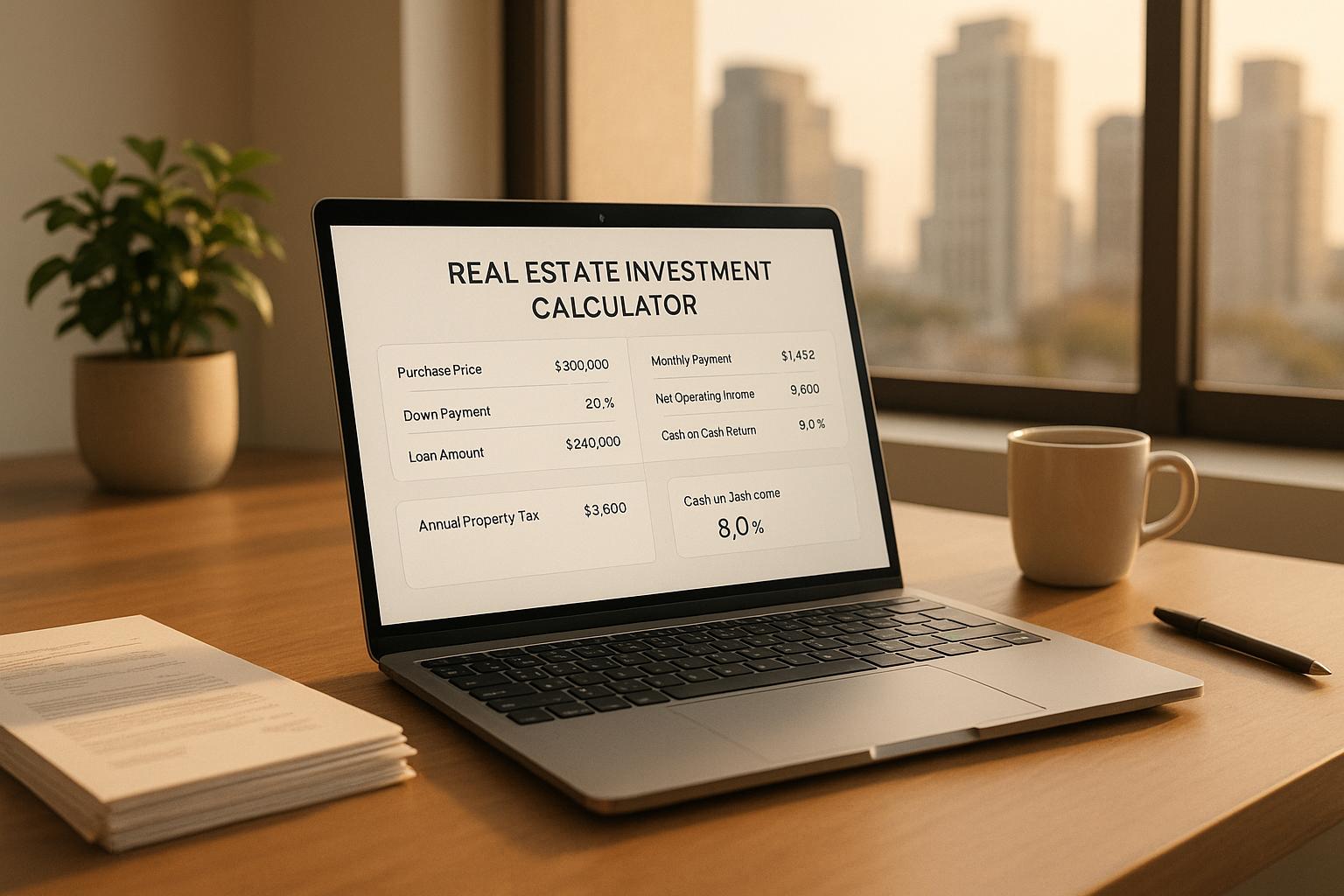Unlock Smarter Property Investments with Our Tool
Investing in real estate can feel like a high-stakes game, but having the right data at your fingertips changes everything. A property investment calculator is a game-changer for anyone looking to buy rental properties or flip houses. It takes the guesswork out of evaluating a deal by crunching numbers on cash flow, return on investment, and other vital stats. No more endless spreadsheets or second-guessing—just clear, reliable insights.
Why Metrics Matter in Real Estate
When you’re eyeing a potential investment, understanding the financial picture is key. Tools that analyze rental income against expenses and loan costs help you spot winners and avoid money pits. Beyond just monthly profits, they reveal long-term value through metrics like cap rate, which shows how a property stacks up in the market. Whether you’re a first-time buyer or building a portfolio, these insights empower you to act with confidence. Plus, with instant results, you can compare multiple properties without wasting time. Dive into the world of smarter investing today, and let data guide your next big move in the housing market.
FAQs
How accurate are the results from this calculator?
The results are based on the data you provide and standard financial formulas, like amortization for mortgage payments. They’re meant to give you a solid estimate of a property’s potential. That said, real-world factors like market shifts or unexpected repairs can impact outcomes, so always consider these as a starting point and consult with a financial advisor for major decisions.
What is cap rate, and why does it matter?
Cap rate, or capitalization rate, is a quick way to gauge a property’s profitability. It’s calculated by dividing the net operating income by the purchase price. A higher cap rate often means a better return, but it can also signal higher risk. This metric helps you compare properties and spot opportunities that align with your investment goals.
Can I use this tool for commercial properties too?
Absolutely! While it’s designed with residential rentals in mind, the core calculations—ROI, cash flow, and mortgage breakdowns—apply to commercial properties as well. Just ensure the income and expense inputs reflect the unique aspects of commercial real estate, like longer lease terms or higher maintenance costs, for the most relevant results.



